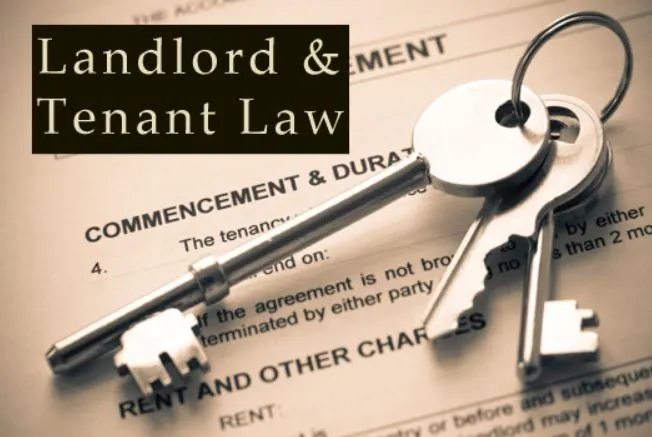Landlord vs Tenant in Nigeria: Can your Landlord Evict You Without Notice?
Tenancy Law Explained: Know Your Rights, Avoid Illegal Evictions, and Master the Landlord-Tenant Game in Nigeria

In Nigeria’s ever-busy real estate market, renting a property is one of the most common life experiences yet also one of the most misunderstood. Every day, landlords and tenants across Lagos, Abuja, Port Harcourt, and beyond clash over rent, eviction, and property maintenance. But here’s the truth: most of these battles could have been avoided if both parties truly understood their rights and obligations under Nigerian tenancy law.
And that’s where this guide steps in. We’re breaking down the legal rights of landlords and tenants in Nigeria, exposing the common mistakes people make, and showing you how to avoid disputes before they start.
Tenancy Law in Nigeria Matters More Than You Think
Whether you’re a landlord who just invested millions in property or a tenant struggling to secure a safe, affordable home, your relationship is more than just personal; it’s legal.
Nigeria’s tenancy framework is built on statutory laws, contracts, and common law principles, all designed to protect both sides. Unfortunately, ignorance of the law often leads to:
- Unlawful evictions (landlords kicking tenants out without due process)
- Tenants overstaying without paying rent
- Endless court cases and even police station drama
The Lagos State Tenancy Law (2011), Rent Control & Recovery of Premises Act, and the Land Use Act (1978) are just some of the laws shaping rental life in Nigeria. But here’s the catch—tenancy law is not the same everywhere. Lagos has stricter rules than most States, so what works in one city may not apply in another.
Landlord Rights in Nigeria (and Their Responsibilities Too)
Being a landlord is not just about collecting rent—it comes with obligations. Here’s the balance:
Rights of a Landlord
- To receive rent when due
- To increase rent (with proper notice)
- To evict tenants for breach of agreement (through lawful court processes)
- To reclaim property after proper notice
Responsibilities of a Landlord
- Keep the property habitable (repairs, water, electricity, safety)
- Provide a written tenancy agreement
- Respect tenant privacy (no barging in unannounced)
- Refund security deposits (minus lawful deductions)
In Ayinke Stores Ltd v Adebogun (2008) 10 NWLR (Pt. 1096) 612, the court held that a landlord cannot evict a tenant without following due process, even if the tenant defaults on rent. This case still stands as a warning to landlords who try to use force instead of the law.
Tenant Rights in Nigeria (and Their Duties Too)
Tenants aren’t helpless either; Nigerian law protects them.
Rights of a Tenant
- Peaceful enjoyment of the property (no harassment from landlord)
- Valid notice before eviction
- Protection from arbitrary rent increases
- The right to demand repairs when necessary
Responsibilities of a Tenant
- Pay rent on time
- Maintain the property responsibly
- Respect the tenancy agreement (no illegal subletting, no damage)
- Live peacefully with neighbours
Eviction in Nigeria: What Does the Law Say?
This is the hot-button issue in Nigeria’s rental system. Eviction is never legal without due process.
For a landlord to repossess a property, they must:
- Serve the tenant a Notice to Quit (depending on tenancy—weekly, monthly, yearly).
- Serve a 7-day Owner’s Intention to Recover Possession Notice.
- Approach the court for a possession order.
Anything short of this, changing locks, cutting electricity, removing roof sheets, is illegal self-help and can backfire badly.
How to Avoid Landlord-Tenant Wars in Nigeria
Instead of endless conflict, there are better ways:
- Put everything in writing – Verbal agreements are a recipe for chaos.
- Use mediation or arbitration – Many disputes can be settled faster outside court.
- Hire legal professionals – A lawyer-drafted tenancy agreement is cheaper than a lawsuit.
- Treat it as business – Landlords should screen tenants, and tenants should read agreements before signing.
Conclusion: Respect the Law, Avoid Regret
In Nigeria, a landlord-tenant relationship can be smooth or nightmarish depending on one thing: awareness of the law.
- Landlords must resist the urge to play judge and enforcer.
- Tenants must respect that renting a house does not mean owning it.
The law is there to protect both sides, but only those who respect it can enjoy its protection. So whether you’re a landlord or a tenant, remember: your peace, property, and pocket depend on what you know and how you act.
Ignorantia Juris Non Excusat
(Ignorance of the Law is not an Excuse)




